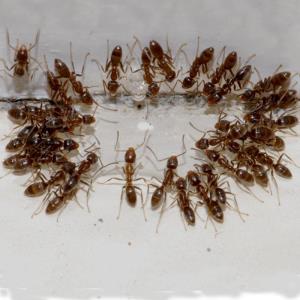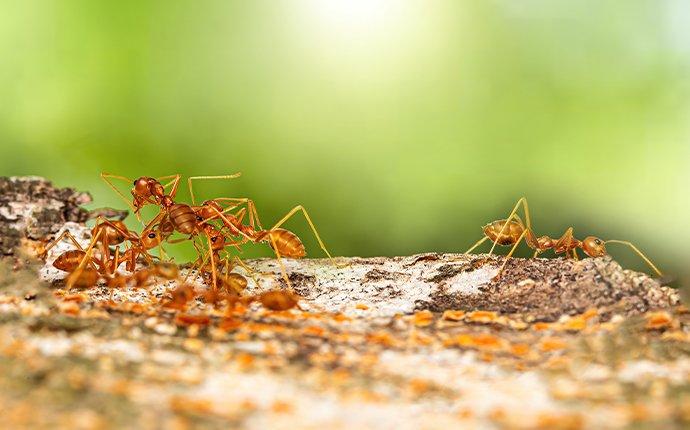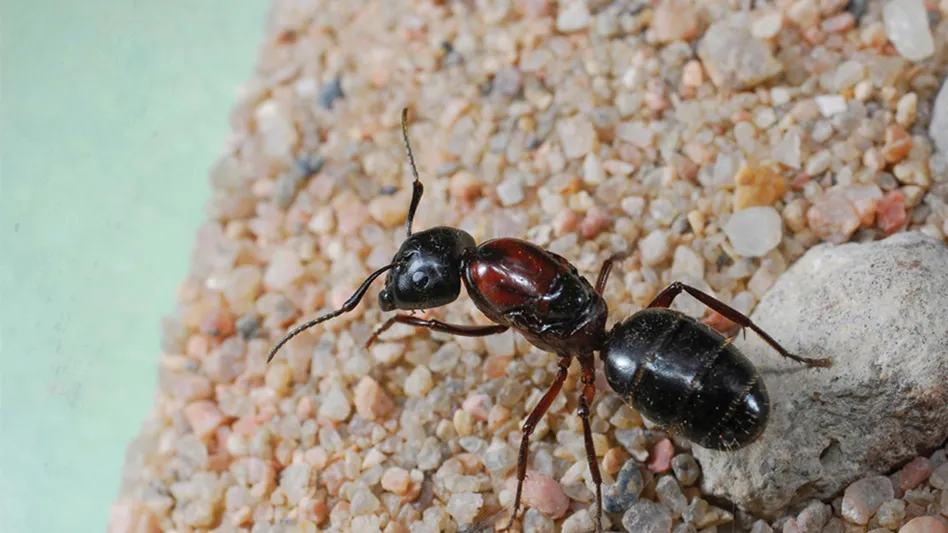Top-Rated Termite Control Services: Ensure Long-Term Security for Your Property
Top-Rated Termite Control Services: Ensure Long-Term Security for Your Property
Blog Article
Ecological Influence of Parasite Control: Harmonizing Performance With Sustainability
The ecological impact of parasite control is a critical issue that calls for a delicate equilibrium between attaining effectiveness in making sure and managing parasites sustainability of our environments. As we make every effort to secure our plants, homes, and health from the risks postured by pests, the techniques we employ can unintentionally damage the setting. From the usage of dangerous chemicals that leak right into our soil and water to the unexpected consequences on non-target varieties, the repercussions of traditional pest control practices are significant. There are arising approaches that use hope for an extra sustainable approach to pest monitoring. These services not just objective to resolve the prompt bug problems but additionally take into consideration the long-term health and wellness of our earth.
Hazardous Chemicals in Insect Control
The usage of dangerous chemicals in insect control presents considerable environmental and wellness threats that require mindful factor to consider and reduction methods. Pesticides, insecticides, and herbicides are commonly made use of to eliminate insects, yet their widespread application can cause unexpected effects. These chemicals can infect soil, water sources, and the air, influencing not only the targeted insects however also useful pests, wild animals, and humans.

To address these dangers, incorporated pest management (IPM) strategies are being advertised as a much more sustainable option. IPM involves a mix of techniques such as biological control, habitat control, and the targeted usage of chemicals as a last hotel (ant control unionville nc). By taking on an all natural approach to pest control, we can reduce the ecological and health and wellness effects related to dangerous chemicals while effectively taking care of pest populations
Influence On Non-Target Types
Thinking about the unintentional consequences of pest control approaches, the effect on non-target types is an essential element that requires complete assessment. While parasite control measures intend to target specific bugs, various other microorganisms in the ecosystem might be accidentally affected. Non-target species, consisting of beneficial bugs, birds, mammals, and even plants, can suffer direct or indirect damage from chemical applications or organic control approaches.
Chemicals can have sub-lethal or deadly results on non-target types. Insecticides developed to deal with a particular insect bug might damage pollinators like or all-natural killers such as ladybugs. Additionally, chemical deposits can gather in the atmosphere, affecting non-target organisms with time. Biological control representatives, if not species-specific, can present dangers to unintentional targets, interrupting the ecological balance.
To reduce the effect on non-target species, incorporated pest management (IPM) techniques that emphasize an alternative strategy to pest control are advised. These techniques prioritize using ecologically pleasant techniques, decreasing injury to valuable microorganisms while properly managing pest populaces. Conducting detailed risk evaluations and keeping track of the outcomes of insect control initiatives are vital action in guarding non-target varieties and promoting general ecosystem health.
Dirt and Water Contamination
Unexpected environmental effects of pest control methods prolong past impacting non-target species, with significant implications for soil and water contamination - ant control services. Chemicals, herbicides, and chemical fertilizers made use of in parasite control can seep right into the dirt and pollute groundwater, posing a hazard to both earthbound and marine environments.
Water contamination is an additional important concern associated with insect control techniques. To reduce soil and water contamination from bug control activities, integrated insect administration strategies that focus on sustainability and lessen chemical inputs are vital.
Air Air Pollution From Pesticide Use
Exposure to airborne chemicals during farming applications presents a significant issue for air contamination control steps. They can volatilize right into the air and type unstable organic substances (VOCs) and various other airborne pollutants when pesticides are sprayed onto crops - termite control services. These chemicals can add to the formation of ground-level ozone, a significant element of smoke that can have damaging results on human health, crop efficiency, and overall air high quality. In addition, pesticide drift, where chemicals are brought by the wind to unplanned locations, can bring about the contamination of nearby communities and water bodies.

Methods for Lasting Pest Control
In the realm of farming methods, applying sustainable bug control approaches is vital for preserving eco-friendly balance and protecting plant yields. Sustainable parasite control stresses making use of eco-friendly techniques to handle parasite populaces successfully while lessening harm to non-target microorganisms and communities. Integrated Pest Administration (IPM) is a widely embraced approach that incorporates biological, cultural, physical, and chemical control methods to accomplish long-term bug monitoring options.
One secret approach in lasting pest control is promoting biodiversity within agroecosystems. By boosting all-natural enemies of bugs, such as killers and parasitoids, farmers can minimize the need for synthetic chemicals. Plant rotation and diversity are likewise effective techniques to disrupt pest life cycles and create much less positive problems for parasites to thrive. In addition, using pest-resistant plant varieties and using techniques like catch chopping can help in reducing insect pressure without relying heavily on chemical treatments. Ultimately, by incorporating these sustainable insect control approaches, farmers can accomplish a balance between pest monitoring performance and environmental stewardship.
Verdict
To conclude, the ecological effect of insect control techniques must be meticulously taken into consideration to stabilize effectiveness with sustainability. Hazardous chemicals made use of in insect control can bring about soil and water contamination, air contamination, and damage non-target types - termite control. It is vital to implement lasting insect control techniques to minimize these adverse impacts on the setting and advertise a much healthier environment for future generations
By adopting an alternative approach to pest control, we can decrease the environmental and wellness effects linked with damaging chemicals while effectively managing pest populaces.

To mitigate the air pollution created by chemical use, it is crucial to take on incorporated insect administration techniques that prioritize the usage of non-chemical bug control techniques, such as plant turning, all-natural killers, and resistant plant varieties. Lasting bug control highlights the usage of environmentally friendly methods to take care of parasite populations efficiently while reducing damage to non-target microorganisms and environments. Integrated Bug Monitoring (IPM) is a commonly taken on method that incorporates organic, cultural, physical, and chemical control approaches to attain long-lasting pest monitoring remedies.
Report this page